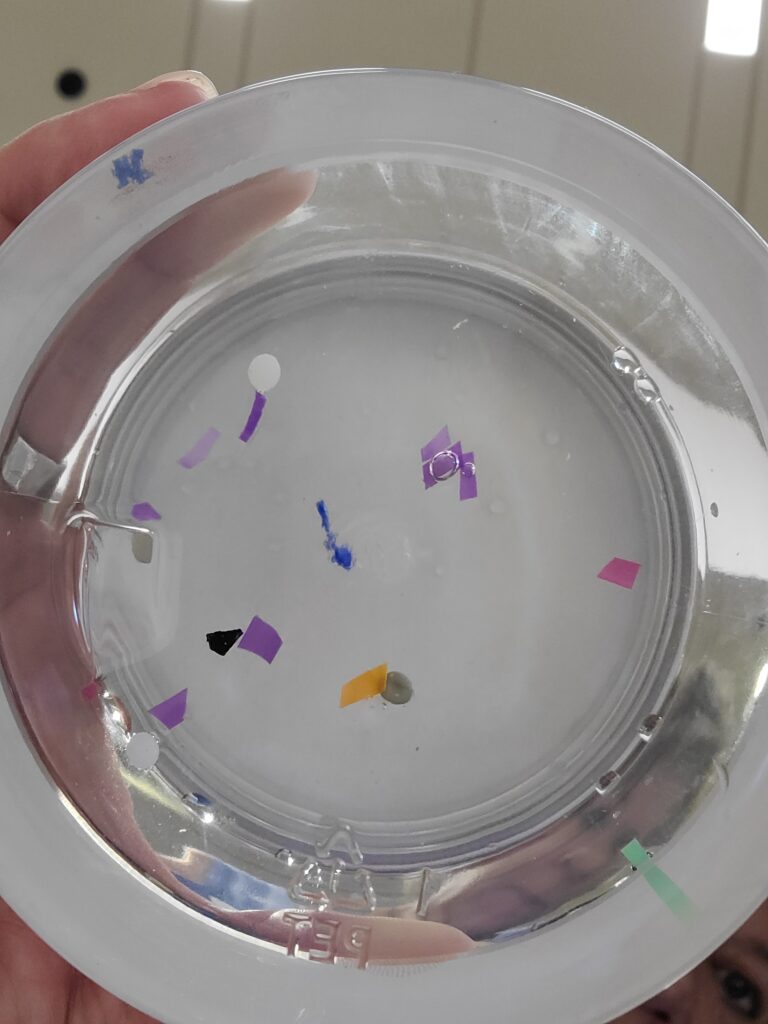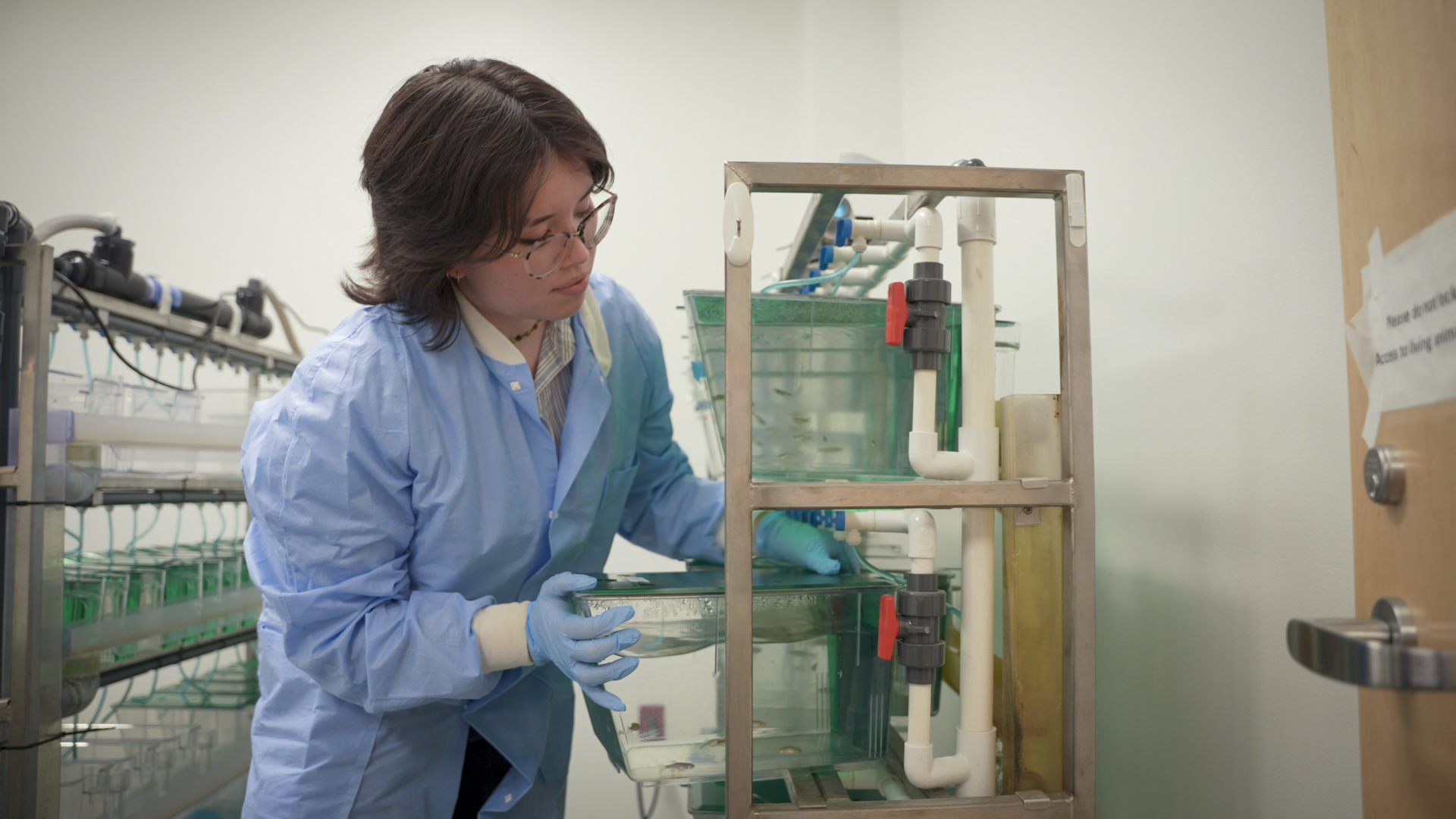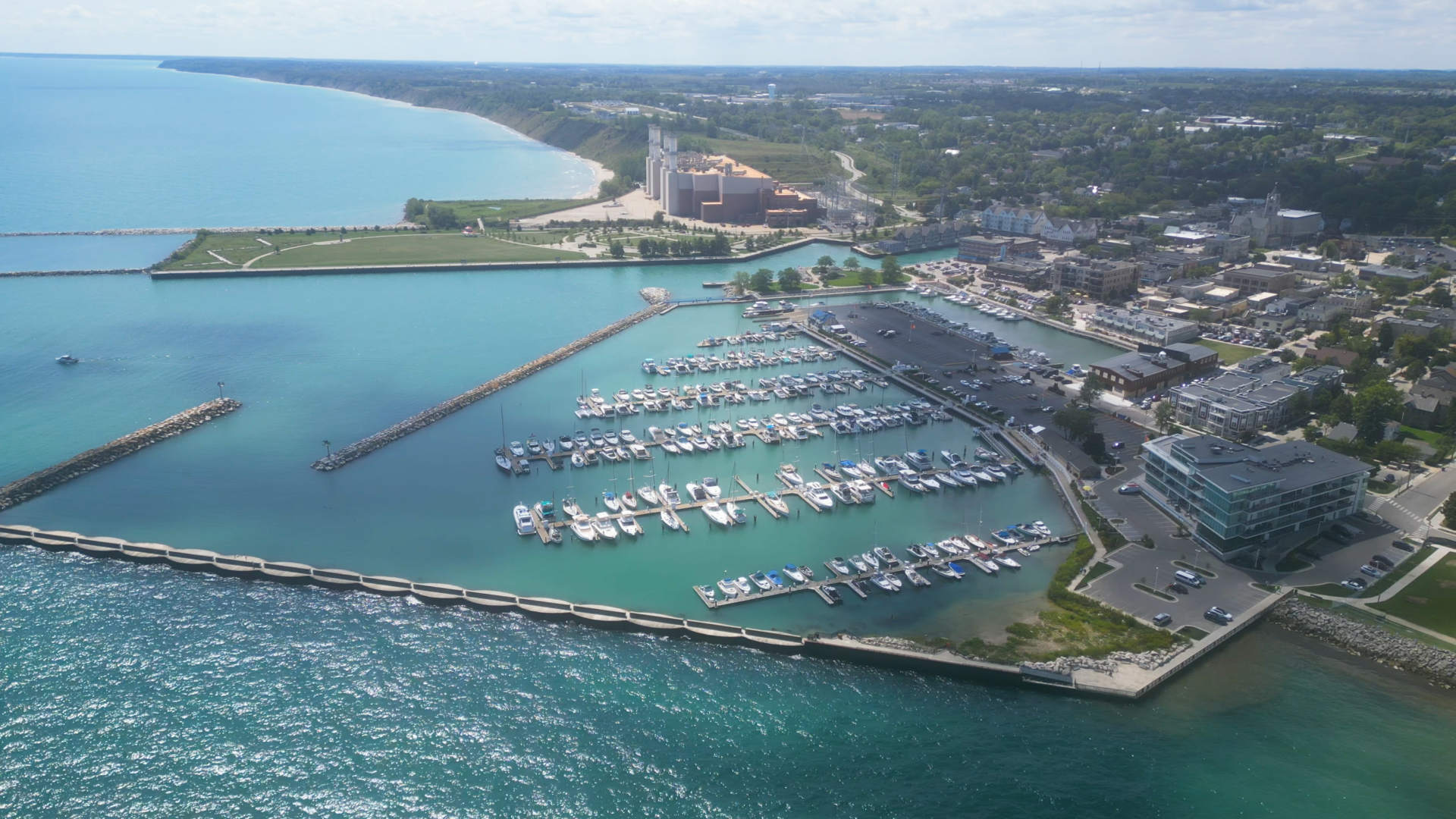
Microplastics may be colorful, but can cause environmental and food web issues in the Great Lakes. Image credit: Marie Zhuikov, Wisconsin Sea Grant
A project that deals with microplastic accumulation in the Great Lakes food web and another that will work with Milwaukee’s fashion community to reduce microplastic debris in waterways were awarded funding by the National Oceanic and Atmospheric Administration through the Marine Debris Challenge and Community Action Coalition competitions.
The first project, “Pinpointing the key drivers for the bioaccumulation of nano- and low-micrometer microplastics in the Great Lakes using a modular pretreatment and plasmonic imaging platform,” is led by Haoran Wei from the University of Wisconsin–Madison. Wei and his team will create a standardized, high-speed testing system to study how tiny microplastics and nanoplastics appear and build up in living organisms in the Great Lakes.
The second project, “Fashioning a model response: Educating members of the fashion industry about microplastics to reduce marine debris in local waters,” is led by Ginny Carlton with Wisconsin Sea Grant. Carlton and partners Milwaukee River Keeper and Mount Mary University will offer workshops for college fashion department faculty, university students and K-12 teachers regarding reducing polyester clothing fiber waste. They will also pilot and launch an online short course for educators about marine debris prevention and the fashion industry.
Funding for these projects and 19 others awarded comes from the Bipartisan Infrastructure Law and the Inflation Reduction Act.





